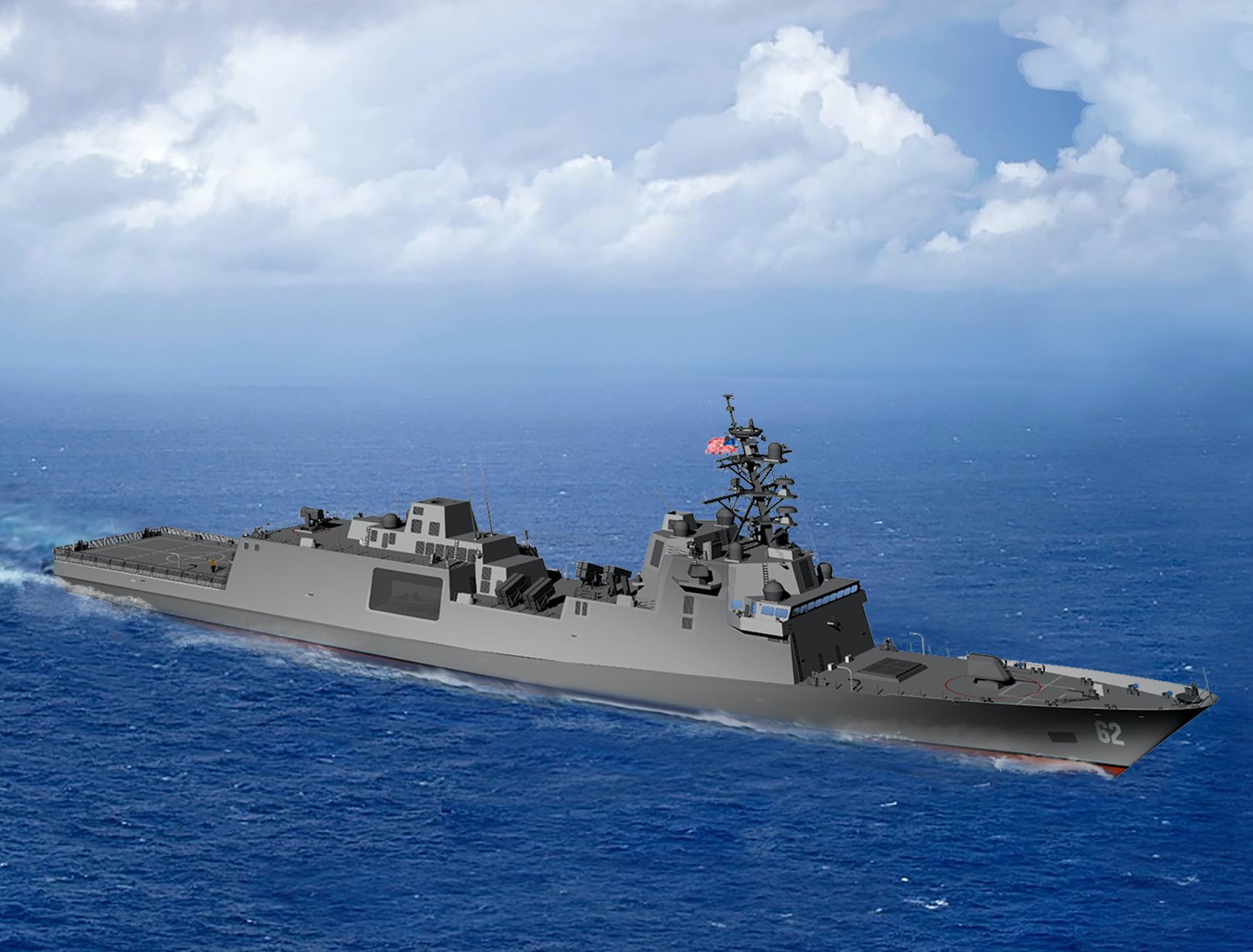
This post has been updated to include comments from industry.
No protests have been filed over the Navy’s decision to award Fincantieri a detail design and construction contract for the FFG(X) program, clearing the way for work to begin, the Navy confirmed to USNI News.
Under contracting rules, bidders have a certain amount of time to protest the decision to the Government Accountability Office if they feel the contracting office made the wrong decision in evaluating bids against the stated requirements. That protest window ended Monday, Naval Sea Systems Command (NAVSEA) spokesman Alan Baribeau told USNI News, and none of the three losing bidders protested the decision.
“The GAO protest period for the FFG(X) contract award has passed and the Navy has not received notice of protest. The Navy is moving forward with execution of the contract, and has completed the Post-Award Conference. Detail design of the FFG(X) is commencing,” he said.
Austal USA submitted a bid based on its Independence-variant Littoral Combat Ship. General Dynamics Bath Iron Works submitted a bid with parter Navantia based on the Spanish F100 frigate. Huntington Ingalls Industries submitted a bid but has not disclosed what mature parent design it is based on.
For a stretch of time – particularly while the military services were limited in spending by the Budget Control Act and sequestration – it was almost assumed that any major acquisition program would be held up by protests. If even one company protests, the winning bidder cannot start work on the program until GAO adjudicates the matter.
According to a GAO report from November 2019, in Fiscal Year 2019 GAO received 2,071 protests, as well as 60 cost claims and 67 requests for reconsideration. Of those protests that were deemed to have merit and were considered by GAO, just 13 percent were sustained and the original decision changed.
“Our review shows that the most prevalent reasons for sustaining protests during the 2019 fiscal year were: (1) unreasonable technical evaluation; (2) inadequate documentation of the record; (3) flawed selection decision; (4) unequal treatment; and (5) unreasonable cost or price evaluation,” reads the report.
The number of overall cases has gone down compared to just a few years ago, according to the report. The 2,198 total cases in FY 2019 compares to 2,607 in FY 2018, 2,596 in FY 2017, 2,789 in FY 2016 and 2,639 in FY 2015.
For the frigate program, the Navy prided itself in having heavy industry engagement early on in the requirements development process to ensure that requirements were informed by both the state of technology as well as realistic cost estimates. Additionally, with all four bidders having participated in the conceptual design process ahead of the detail design and construction competition, the Navy hoped that there would be clarity on what it was looking for and how it prioritized cost and capability, therefore leading to less confusion and less likelihood of a protest period that would slow down the start of this new shipbuilding program.
Ingalls Shipbuilding spokeswoman Teckie Hinkebein told USNI News that the Mississippi shipyard was disappointed to have lost the competition but that the process the Navy had used was a useful one.
“Ingalls is disappointed that our highly capable ship was not selected, which includes our extensive experience in building, integrating and testing highly complex warships across numerous ship classes,” she said.
“The early Navy-Industry studies were useful in shaping our understanding of the requirements. As a result, our offer was U.S. designed by U.S. engineers with U.S. material that was highly common with other Navy ships and leveraged the existing domestic supply chain. Unfortunately the Navy decided to go in another direction. We look forward to continuing our strong performance on our existing programs.”
Austal declined to comment on the competition and its decision not to protest.
Bath Iron Works did not comment directly to USNI News but pointed to recent comments by yard president Dirk Lesko, who said ongoing delays in Arleigh Burke-class destroyer construction at the yard likely contributed to the company not winning the frigate contract.
“The thing we really need to focus on is, as we look at what comes after the work we currently have under contract, how do we do those things, meet those customer needs – quality, schedule and affordability – better than we are doing now,” Lesko told the Portland Press Herald. “There is no simple answer, but we know what to do, we know how to do it. We have to go work on that together and collaboratively with the Navy, collaboratively with the workforce.”
Lesko noted that in recent years the yard also failed to win a Coast Guard cutter contract and won fewer destroyers under a recent contract than Ingalls Shipbuilding, which also builds Arleigh Burke DDGs. He said the company has years of DDG work ahead of it, but it’s currently running about six months behind schedule on production, which may contribute to losing out to other shipbuilders in recent years.
“From the Navy’s evaluation, they say you are six months behind or more, that is a risk for me going forward on everything you have under contract and certainly a risk for anything new you would start,” he told the Maine newspaper.





